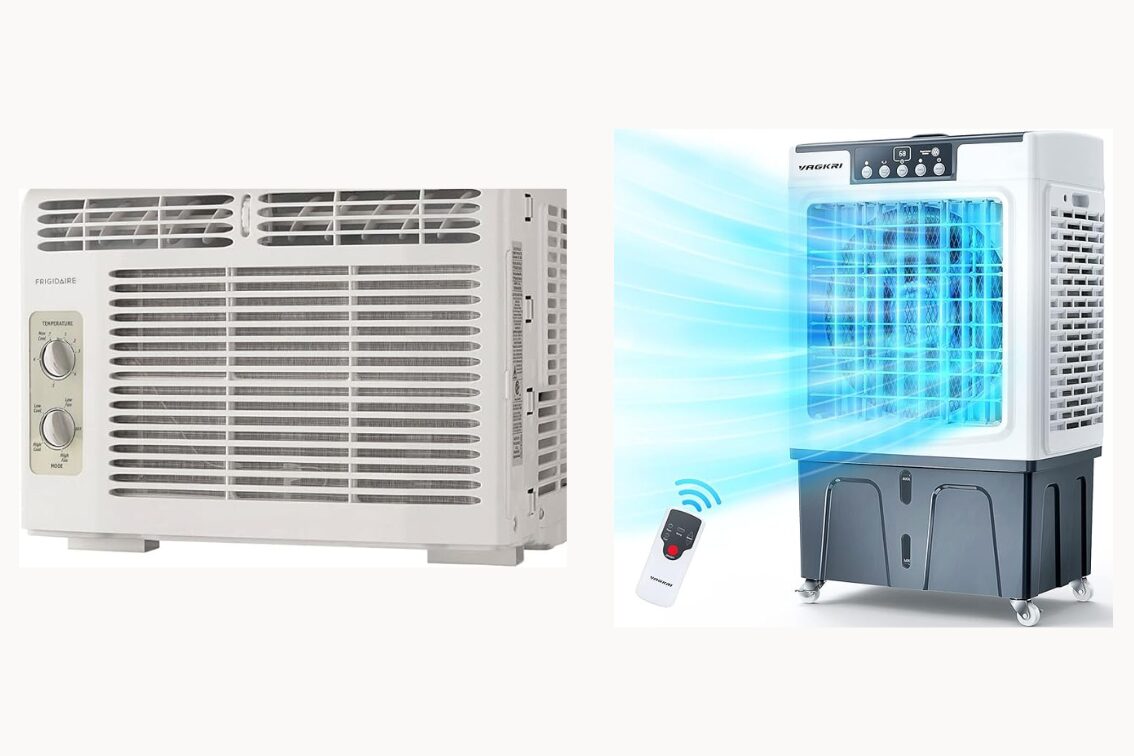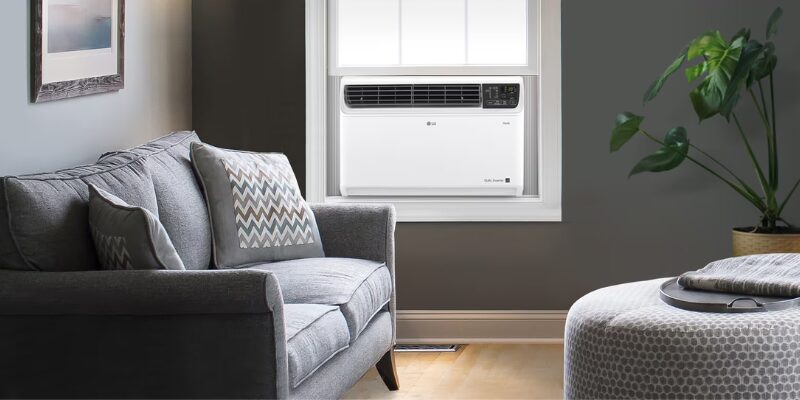*This post may contain affiliate links for which I earn commissions.*
When the summer sun starts blazing, staying cool becomes a top priority. If you’ve ever wondered which cooling option—evaporative coolers or air conditioners—would best tame the heat in your home, you’re in the right place.
Imagine sitting indoors, feeling the relief of a cooler breeze washing over you. But here’s the twist: both evaporative coolers and air conditioners promise to do just that, albeit in quite different ways.
How They Work
Evaporative Coolers: Think of them as nature’s air conditioner. Evaporative coolers, also known as swamp coolers, harness the power of evaporation. They pull warm air from outside through water-soaked pads. As this air passes through, the water evaporates, cooling it down before blowing it back into your space. It’s like a refreshing breath of cool air on a hot day.
Air Conditioners: These devices use a refrigeration cycle to cool the air. They suck warm air out of your room, cool it using a refrigerant, and then circulate the chilled air back inside. This process not only cools but also dehumidifies the air, making your space feel crisp and comfortable.
Pros and Cons
Evaporative Coolers:
- Pros: Energy-efficient, budget-friendly, eco-friendly (no harmful refrigerants), and they add moisture to dry air.
- Cons: Less effective in humid climates, require a constant water supply, and have limited cooling power for large spaces.
Air Conditioners:
- Pros: Powerful cooling, effective in all climates, precise temperature control, and excellent for dehumidifying.
- Cons: Higher energy usage, more expensive upfront and to maintain, and potential environmental impact from refrigerants.
Cost Comparison
Evaporative Coolers: Generally cheaper to purchase and operate due to lower energy consumption. Maintenance costs are minimal, mainly involving periodic cleaning and pad replacements.
Air Conditioners: Higher initial cost and energy usage. They require more maintenance, including filter changes and professional servicing, which adds to the long-term expenses.
Performance in Different Climates
Evaporative Coolers: Thrive in hot, dry climates where they can lower temperatures effectively. They struggle in humid areas where moisture levels are already high.
Air Conditioners: Versatile and effective in both dry and humid environments. They excel in removing humidity, making them ideal for places with sticky summer weather.
Environmental Impact
Evaporative Coolers: Environmentally friendly with lower energy consumption and no harmful refrigerants. However, they do require a constant water supply, which can be a concern in drought-prone areas.
Air Conditioners: Higher energy usage and potential environmental impact from refrigerants. Proper disposal and maintenance are crucial to minimize their ecological footprint.
Maintenance and Longevity
Evaporative Coolers: Require regular cleaning and occasional pad replacements. With proper care, they can last 10-15 years with minimal maintenance costs.
Air Conditioners: Need regular filter changes, coil cleaning, and professional servicing. They also last 10-15 years but may require more costly repairs over time.
Best Use Cases
Evaporative Coolers: Perfect for dry climates, outdoor spaces, and budget-conscious consumers looking for an eco-friendly cooling option.
Air Conditioners: Ideal for humid climates, enclosed spaces, and users needing precise temperature control and powerful cooling.
Conclusion
Choosing between evaporative coolers and air conditioners depends on your climate, budget, and cooling needs. Evaporative coolers shine in dry, hot environments, offering energy efficiency and affordability. On the other hand, air conditioners provide powerful cooling and dehumidification, making them versatile for all climates but with higher costs and environmental considerations.
See Our Top Picks for Air Conditioners
🙋♀️ For more detailed reviews and tips on staying cool, be sure to explore other posts on our website. Check out our in-depth product reviews to find the best cooling solutions for your needs. Don’t forget to share your own experiences and tips in the comments below. Stay cool and beat the heat with Heatwave Hacks!




